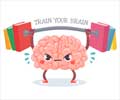A single MRI scan can identify those at highest risk for cognitive decline, aiding neurological care.

Brain Age Modeling and Cognitive Outcomes in Young Adults With and Without Sickle Cell Anemia
Go to source). The study was published in JAMA Network Open.
‘People with #sicklecell disease may have #brains that age up to 14 years faster than their actual age. This accelerated #aging is linked to lower #cognitive scores.’





How Chronic Illness and Socioeconomic Status Impact Brain Health
“Our study explains how a chronic illness and low socioeconomic status can cause cognitive problems,” said Andria Ford, MD, a professor of neurology and chief of the section of stroke and cerebrovascular diseases at WashU Medicine and corresponding author on the study. “We found that such factors could impact brain development and/or aging, which ultimately affects the mental processes involved in thinking, remembering and problem solving, among others. Understanding the influence that sickle cell disease and economic deprivation have on brain structure may lead to treatments and preventive measures that potentially could preserve cognitive function.”More than 200 young, Black adults with and without sickle cell disease, living in St. Louis and the surrounding region in eastern Missouri and southwestern Illinois, participated in brain MRI scans and cognitive tests. The researchers – including Yasheng Chen, DSc, an associate professor of neurology at WashU Medicine and senior author on the study – calculated each person’s brain age using a brain-age prediction tool that was developed using MRI brain scans from a diverse group of more than 14,000 healthy people of known ages. The estimated brain age was compared with the individual’s actual age.
The study also found that socioeconomic status correlates with brain age. On average, a seven-year gap was found between the brain age and the participants’ actual age in healthy individuals experiencing poverty. The more severe the economic deprivation, the older the brains of such study subjects appeared.
Healthy brains shrink as people age, while premature shrinking is characteristic of neurological illnesses such as Alzheimer’s disease. But a smaller brain that appears older can also result from stunted growth early in life. Sickle cell disease is congenital, chronically depriving the developing brain of oxygen and possibly affecting its growth from birth. Also, children exposed to long-term economic deprivation and poverty experience cognitive challenges that affect their academic performance, Ford explained.
As a part of the same study, the researchers are again performing cognitive tests and scanning the brains of the same healthy and sickle cell participants three years after their first scan to investigate if the older-looking brains aged prematurely, or if their development was stunted.
Advertisement
Reference:
- Brain Age Modeling and Cognitive Outcomes in Young Adults With and Without Sickle Cell Anemia - (https://jamanetwork.com/journals/jamanetworkopen/fullarticle/2829361)
Source-Eurekalert















